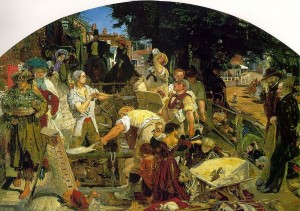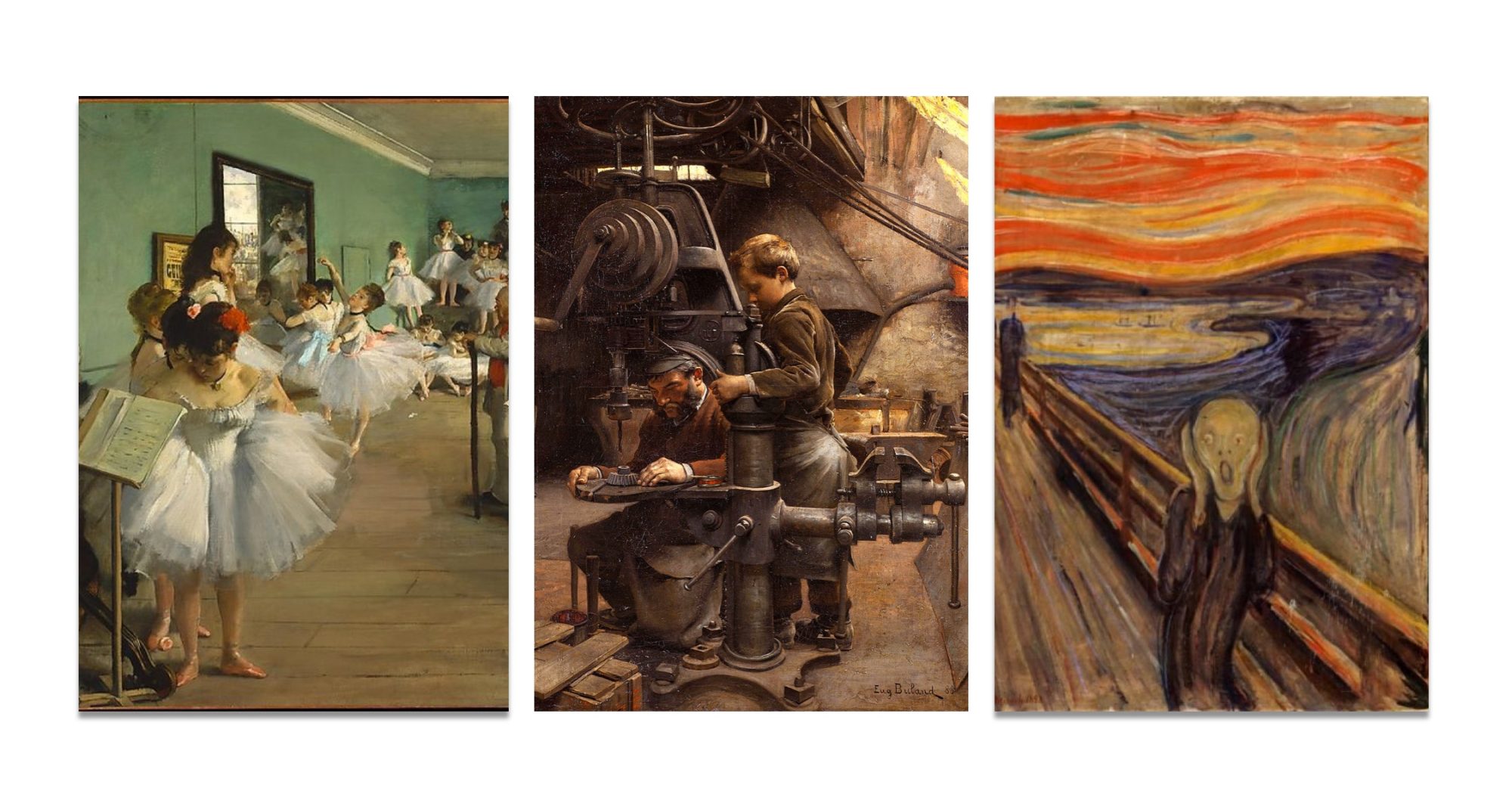
In this unit, we explore various levels of institutional control, particularly in the workplace. Of most interest to this unit is our close observation of bodies in repetition, often repeating such everyday habits as walking across a room, and our critical reflections on how our bodies often obey instinctual, cultural, and anthropological habits. In what ways do our bodies unconsciously follow old habits, and in what ways do we exert agency over our minds and bodies?
- Adam Smith, “On the Division of Labor” from Wealth of Nations (1776)
- Brothers Grimm, “The Three Spinners” (1812)
- Mary Shelley, from Frankenstein (1818)
- Thomas Carlyle, “Signs of the Times” (1829)
- Thomas Hood, “The Song of the Shirt” (1843)
- John Ruskin, from On the Nature of Gothic Architecture (1853)
- Harriet Jacobs, from Incidents in the Life of a Slave Girl (1851)
- Rokheya Shekhawat Hossein, “Sultana’s Dream” (1905)
- John Dos Passos, “The American Plan” [Taylorism] from The Big Money (1933)
- Charlie Chaplin, from Modern Times (1936)
- Michel Foucault, from “Panopticism” (1977)
Experiment: Observing a Repetition
Our habits, manners, and behaviors become nearly invisible to us in consequence of the deeply ingrained civilizing process. Yet, the subtle ways in which different individuals comport themselves, as in brushing one’s teeth, hand-writing a letter, waving to a friend, walking into a restaurant, or dancing at a party, can say much about personality, psychology, culture, socioeconomic status, moral values, or political beliefs.
In an attempt to render the invisible visible, perform a close reading of an ordinary physical human behavior, such as eating with a fork or sitting into a chair. For the best results, observe at least 5 different people performing this same action. What mechanical similarities does each person share? How and why are certain elements of the action different?
Project: Reading the Body (200 points)
Length: 1250 words (total)
Points: 200
We’re surrounded by technology that functions as extensions of our bodies, but this technology is still in its infancy. Devise a technology of the (distant) future that transforms the human experience in a significant way. You might start with an idea about text messaging with your brain, but explore even deeper science fiction terrain to imagine, for example, transmitting human emotion from one body to the next. While you have free reign to explore any posthuman technologies you can imagine, you might think about these possibilities in the three categories we explored in this module: labor, social control, and psychology.
The project consists of two parts: a posthuman invention and a critical essay.
| Invention | You are a scientist, much like Victor Frankenstein, whose experiment has gone awry and has pushed you to the verge of death. Before you die, you must confess your tale of hope, discovery, and ruin. Devise a technology/invention of the (distant) future that transforms the #humanexperience in a significant way (think specifically of the human body). | 50 points |
| Tell us about this invention in a letter directed at future scientists: Who are you? What are your dreams, fears, ethics, and morals? How did your invention come about? What is wrong with your invention? | 50 points |
| Critical | Place your invention in conversation with the texts and issues we explored in this unit. Create a thesis statement that identifies your own relationship to the questions we have explored in terms of the mechanisms of control that are coded in the body and/or the ways these mechanisms are subverted. | 50 points |
| In order to fully engage with this historical material, you will need to include a minimum of 3 texts from the syllabus in your essay and meet a page limit of 3 pages double-spaced (or 750 words) | 50 points |
